兄(あに)は 子(こ)どもに 手を あげた ことが ない。 My brother has never corrected his children. My brother has never hit his children.…
をあげる.png)
をあげる.png)
兄(あに)は 子(こ)どもに 手を あげた ことが ない。 My brother has never corrected his children. My brother has never hit his children.…
![[dictionary form verb] + と](https://www.easyjapanesee.com/wp-content/uploads/2020/07/200716-春が来ると.png)
はるが くる ( ) さくらが さきます。 と b. とき c. なら d. のに A: はるがくる = spring comesB: さくらが さきます…
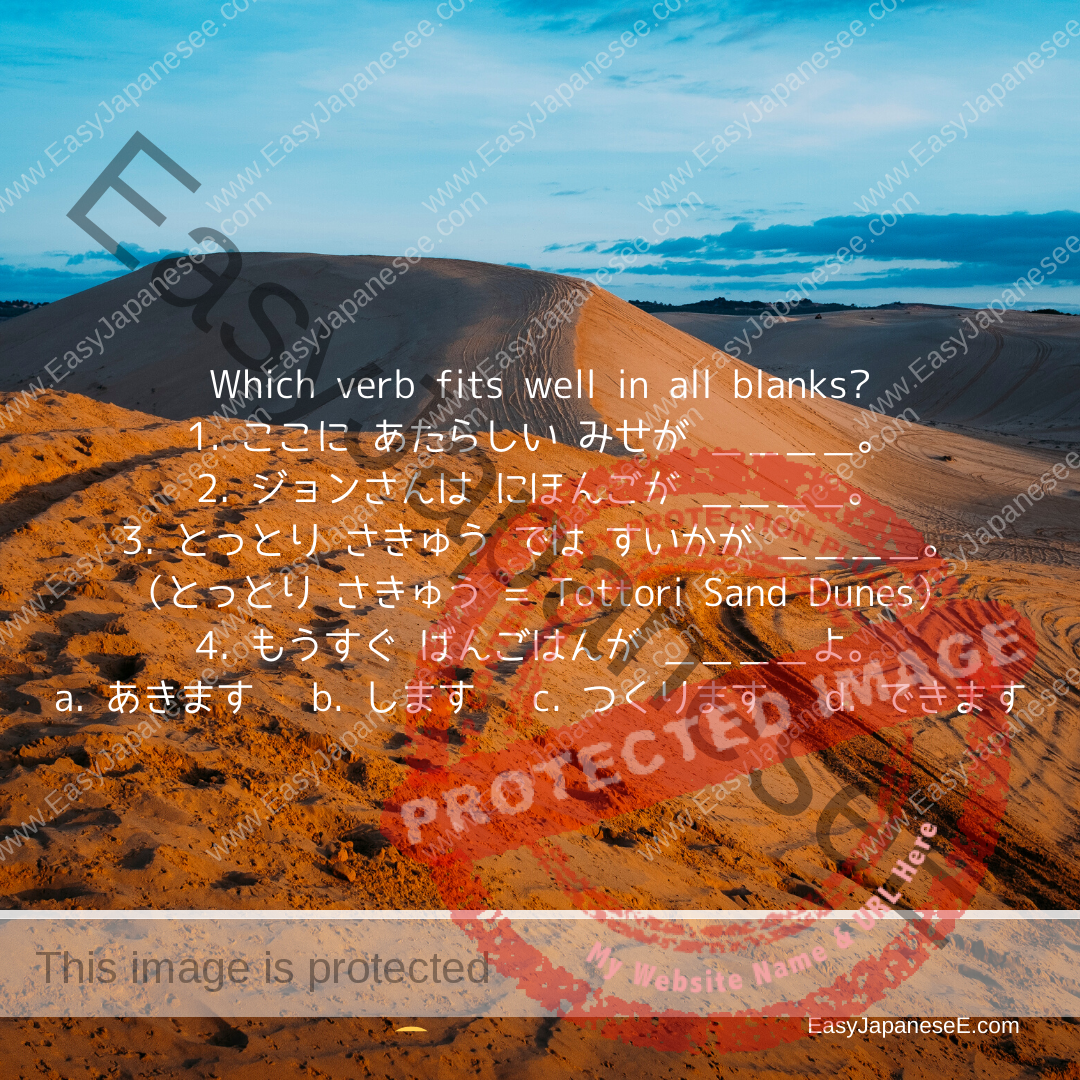
Which verb fits well in all blanks? ここに あたらしい みせが ____。 ジョンさんは にほんごが ____。 とっとり さきゅう では すいかが ____。(とっとり さきゅう…
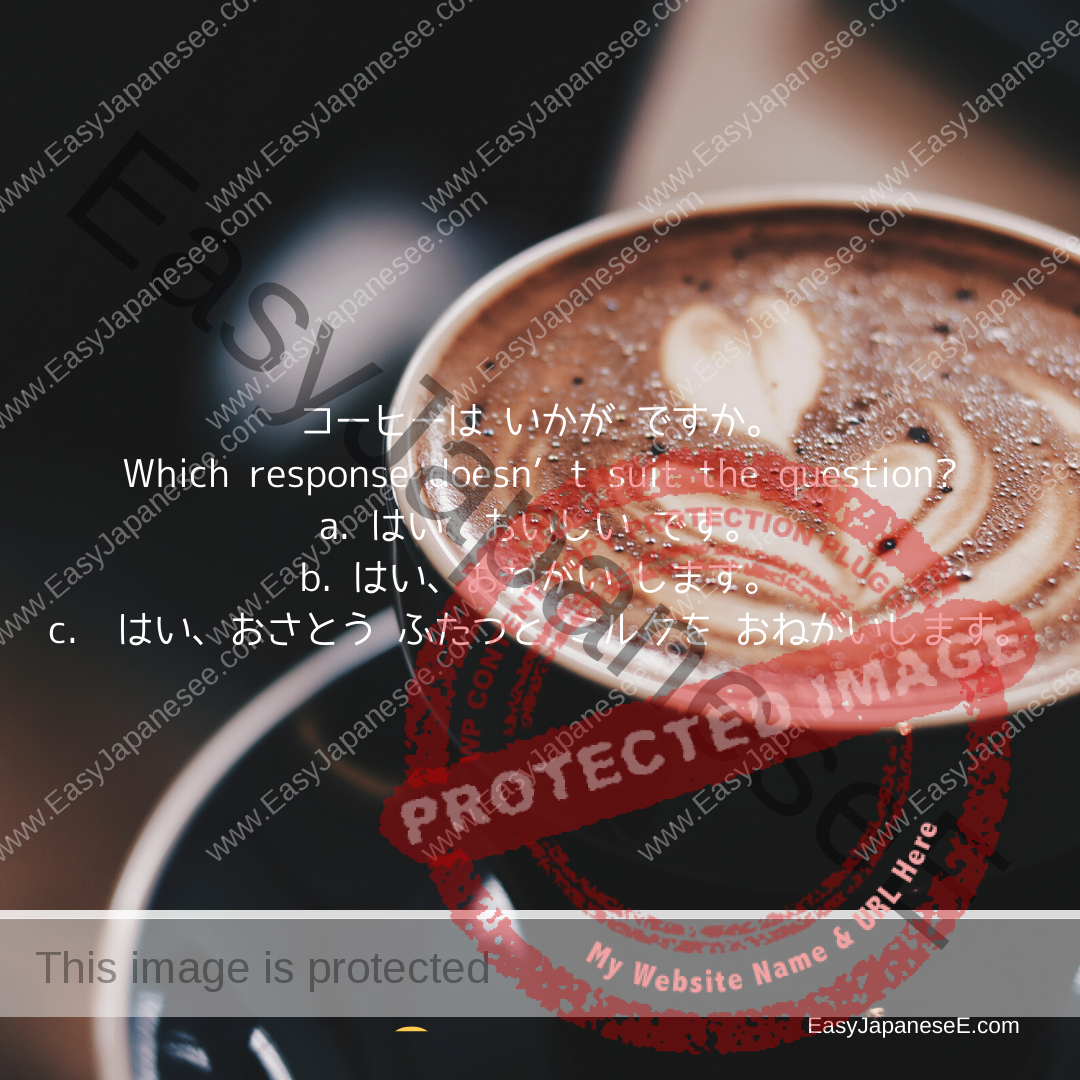
Today’s Question コーヒーは いかが ですか。Which response doesn’t suit the question? はい、おいしい です。 はい、おねがい します。 はい、おさとう ふたつと ミルクを おねがいします。 Two meanings…
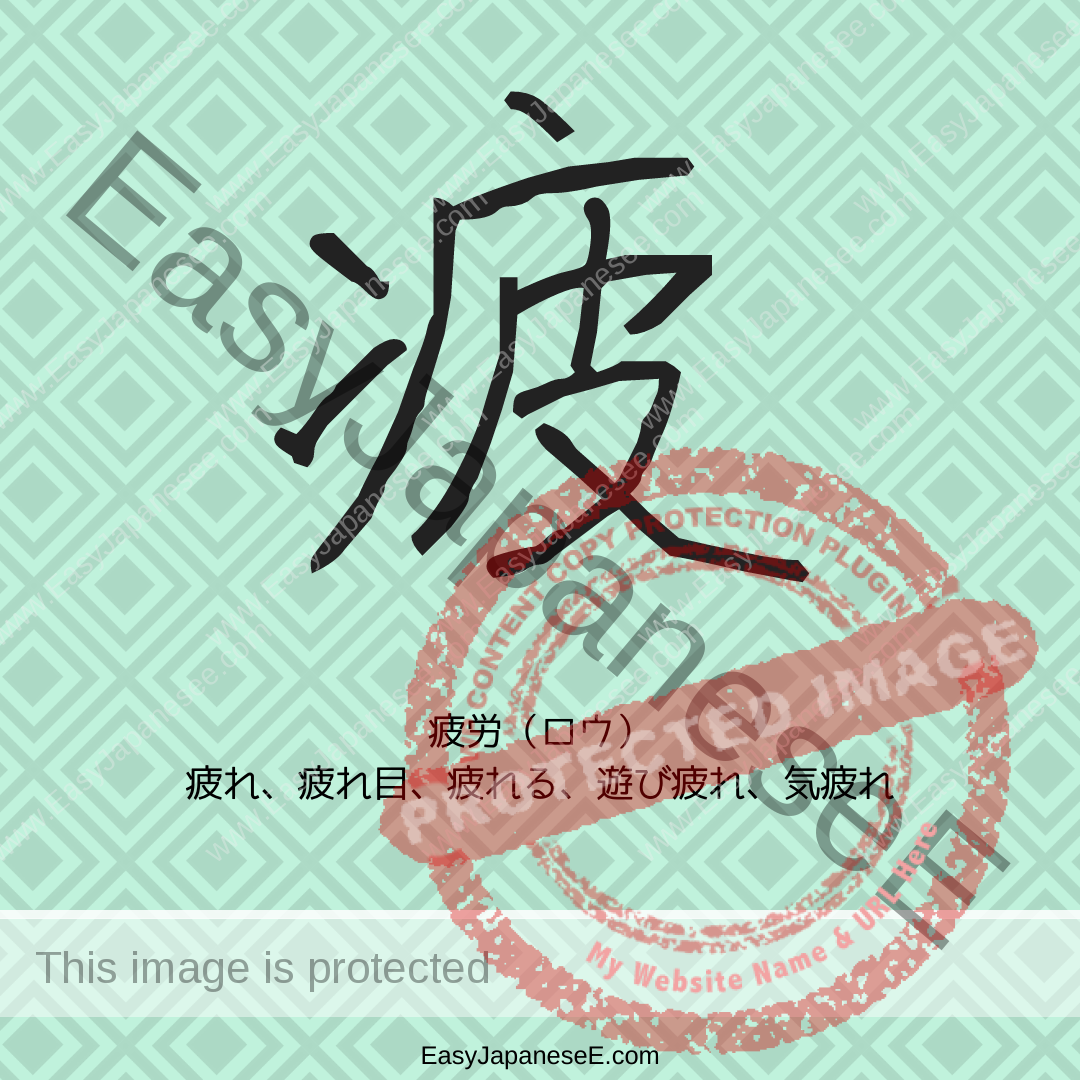
Today’s #kanji is 疲, which is listed under its semantic element of #やまいだれ(疒) which shows association with disease. Its phonetic element is 皮.
-an-arm.png)
あの いしゃは うでが いい。 That doctor is competent. That doctor has good connections (with other doctors). That doctor has long…
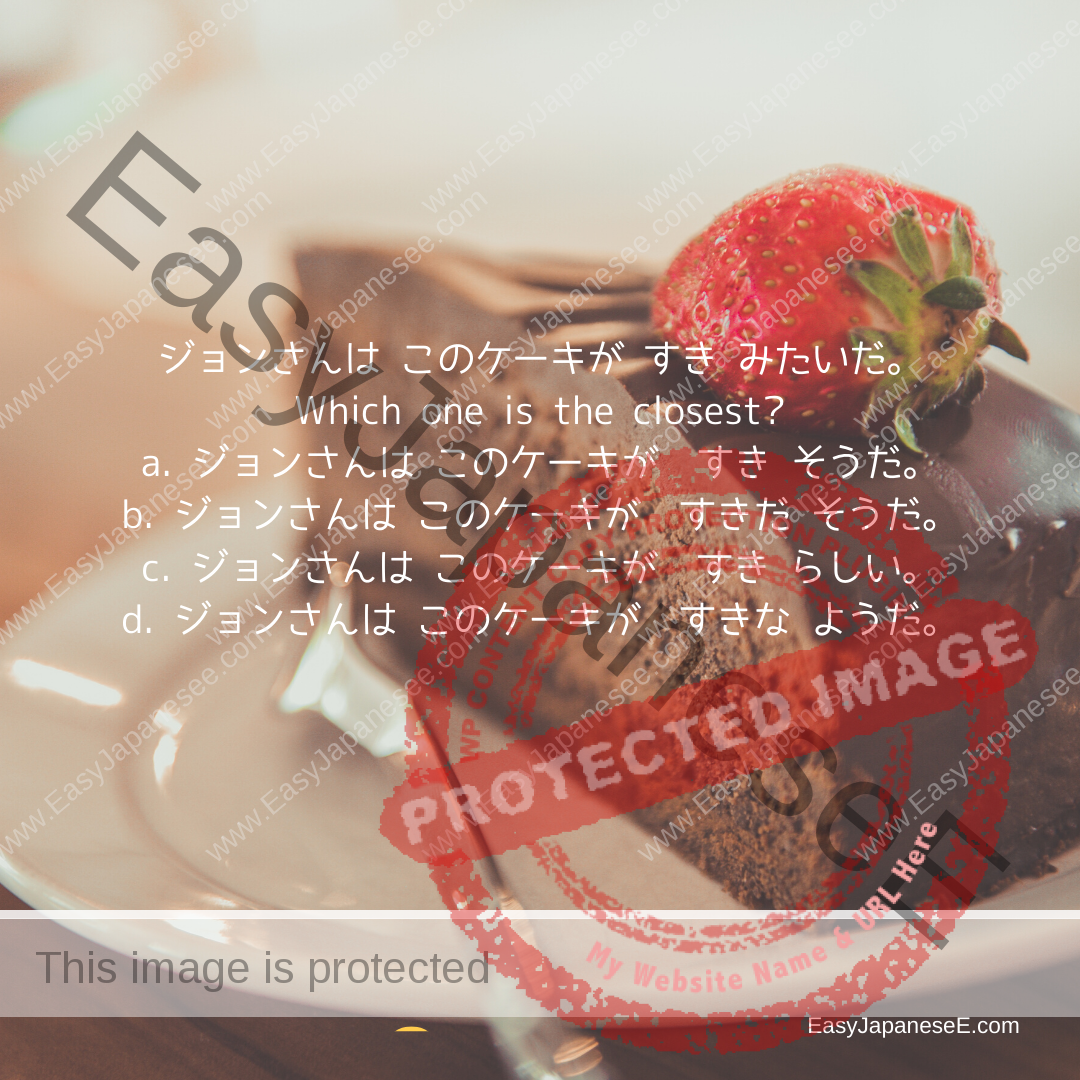
みたい、らしい、そう、よう are all used to describe your allegation, judgement or prediction based on what you have seen/heard. Today I will try to explain the differences.

The Japanese verb わかる/わかります is often translated as “to understand” but its usage in Japanese needs a bit of attention. This post explains why and how.
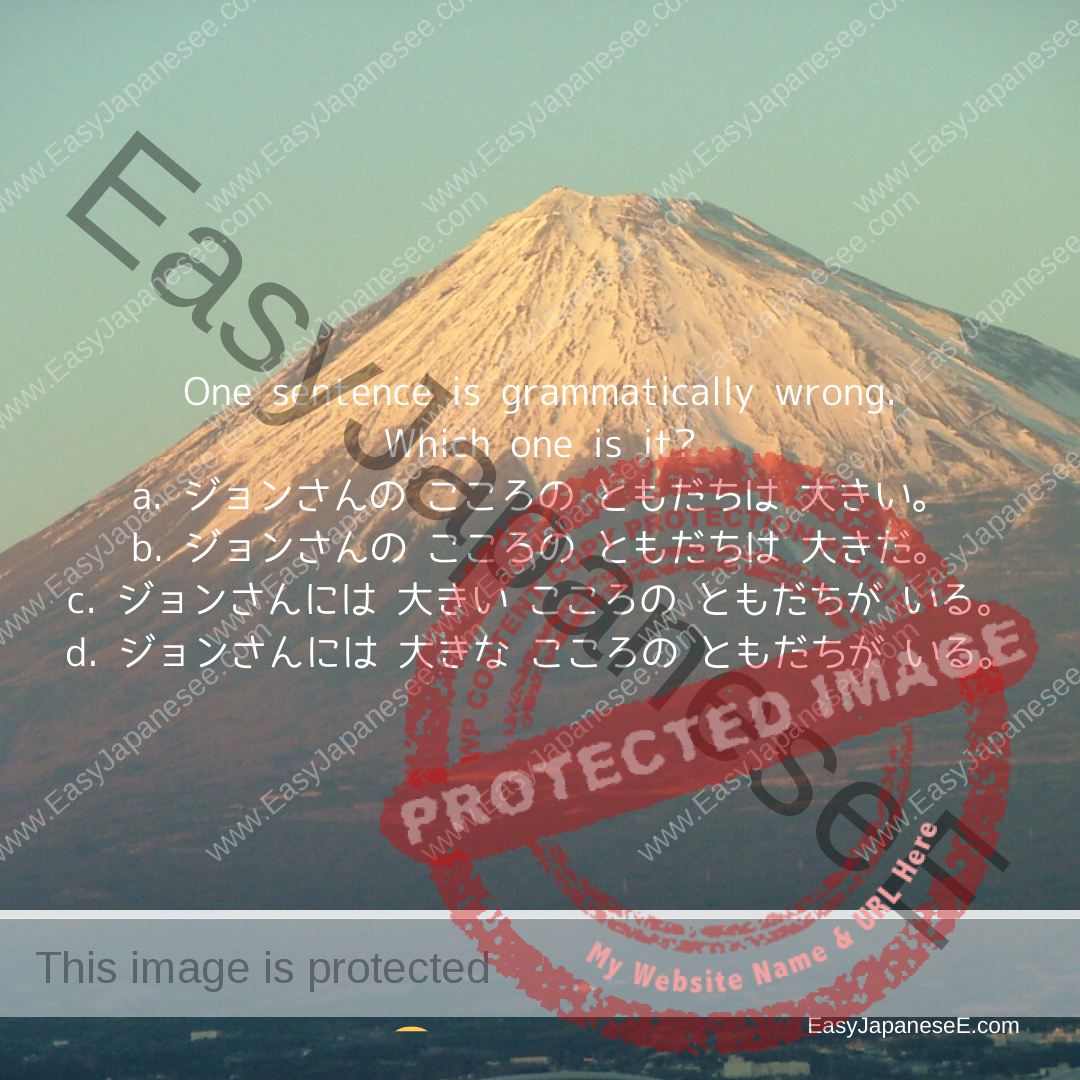
One sentence is grammatically wrong. Which one is it? 大おおきい and 大おおきな both mean “big.” There is no clear difference…

This post explains how to use the word ~まえに like the English conjunction “before.” It can only follow a non-past plain verb or a noun + の.
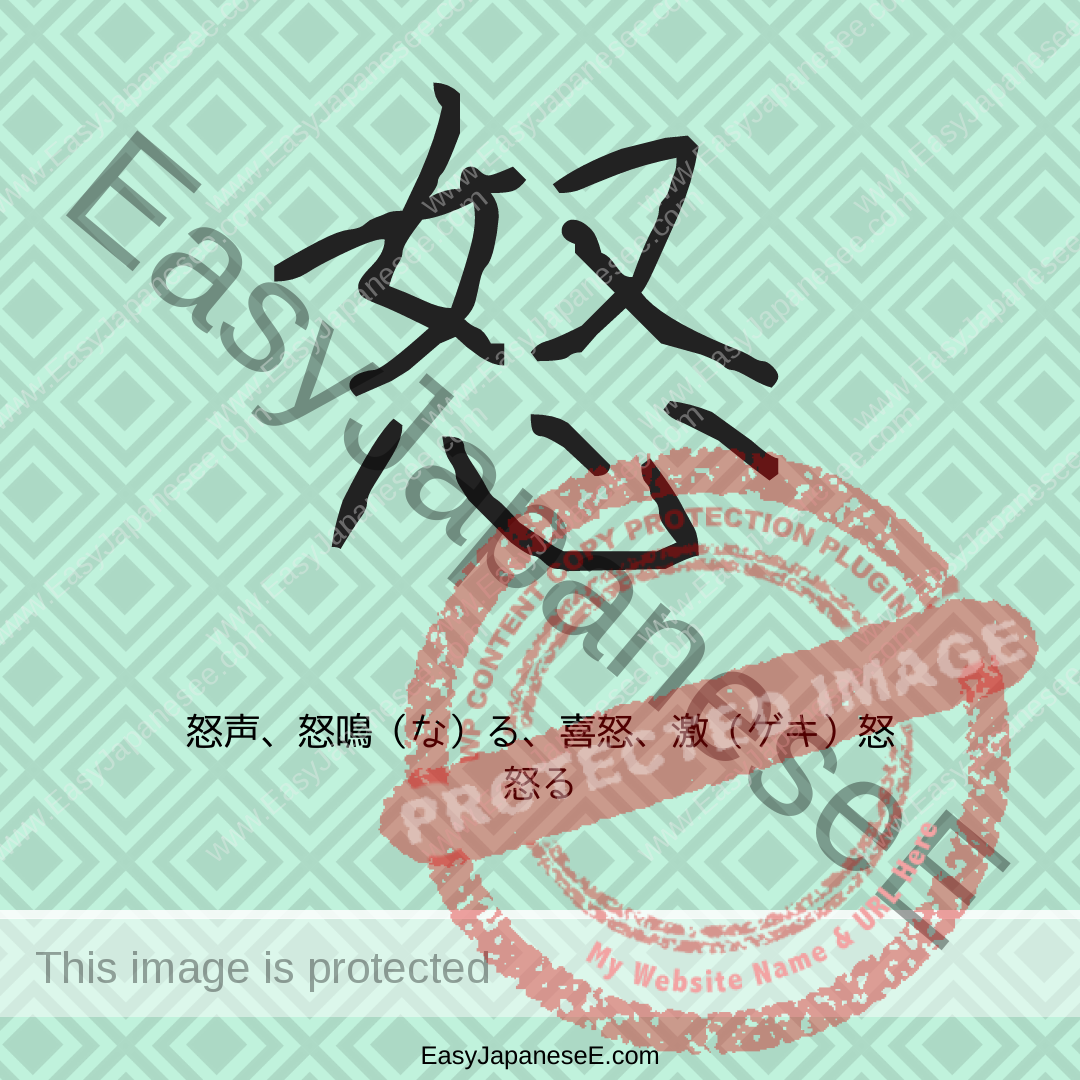
This week’s #kanji is #怒, which is listed under its semantic element of #したごころ(心). Its phonetic element is 奴, Can…

Today’s topic is customary expressions using 肩(かた), shoulders. ジョンさんは いつも わたしの 肩(かた)を もってくれる。 a. John always grabs my shoulder.b. John…
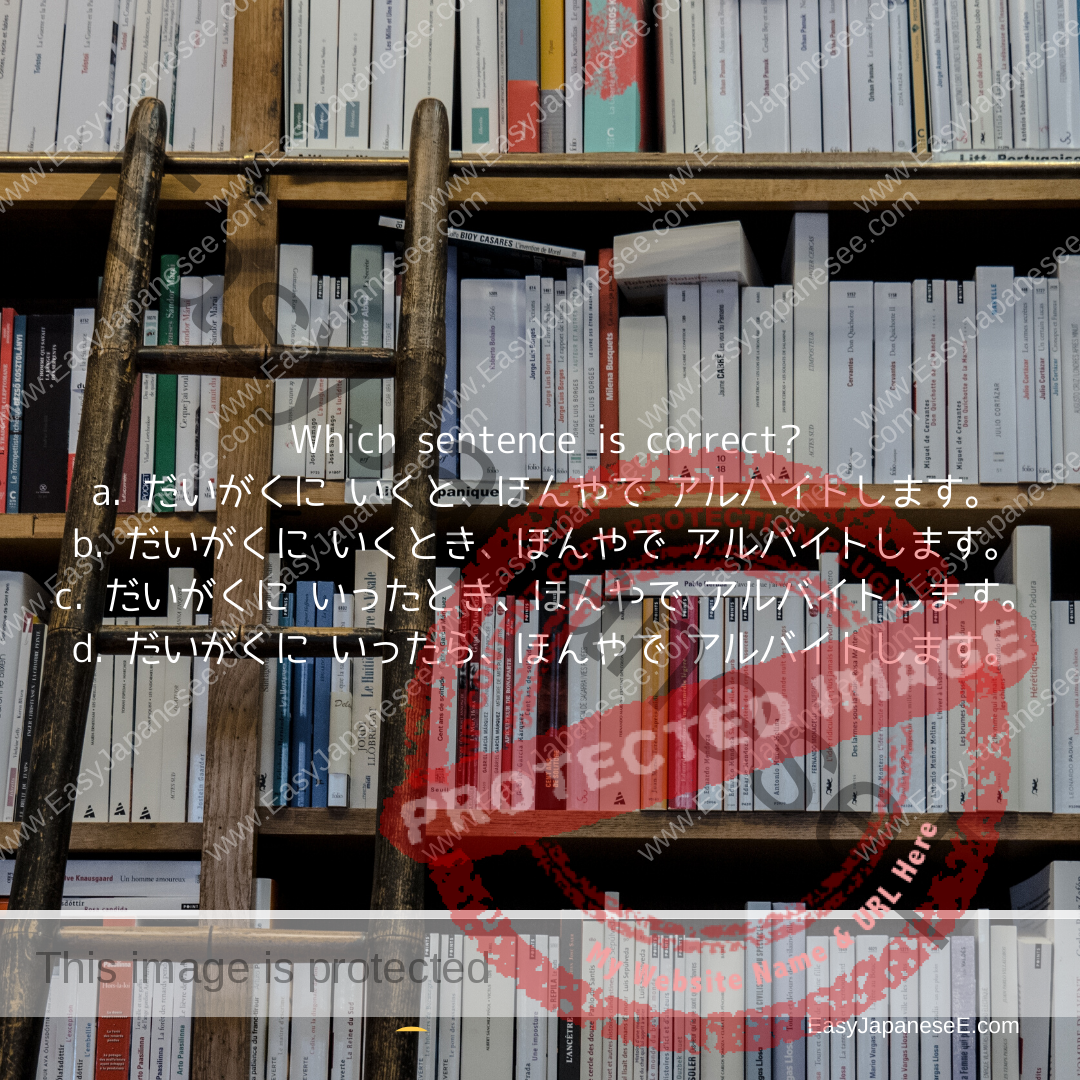
All ~と, ~とき and ~たら can be used for “when ~” but their meanings are quite different. This post explains when to use which one.

What is the best word to put in all the blanks below. ひらがなと カタカナは ___。 アメリカと にほんとは おおきさが ___。 ジョンさんは…
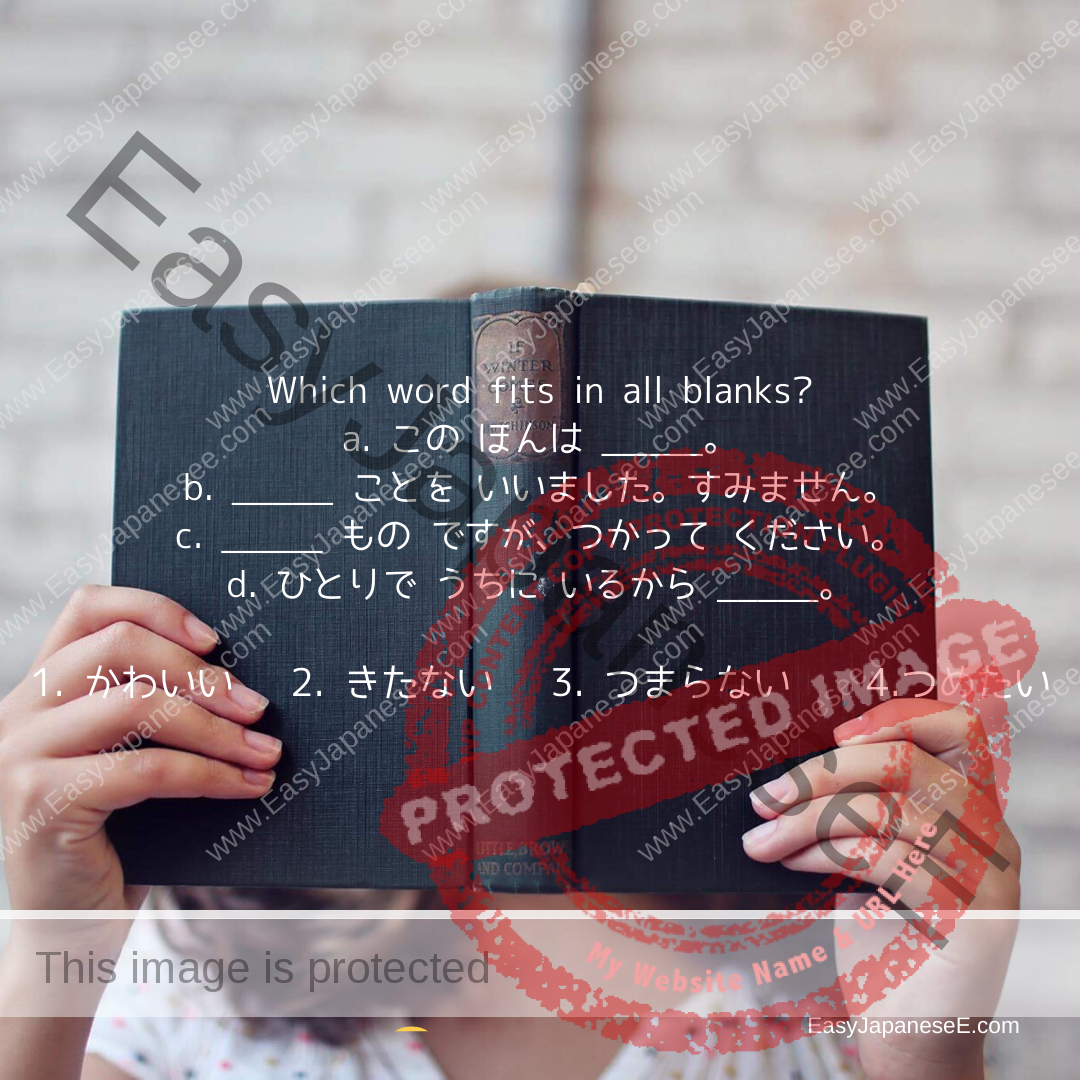
a. この ほんは ___。 b. ___ことを いいました。すみません。c. ___ものですが、つかってください。 d. ひとりでうちに いるから ___。 かわいい 2. きたない 3. つまらない 4.つめたい The best…

Grammatically でしょう is called a conjectural auxiliary verb (a bit mouthful, isn’t it?). It is used to make a prediction or to express your guess.
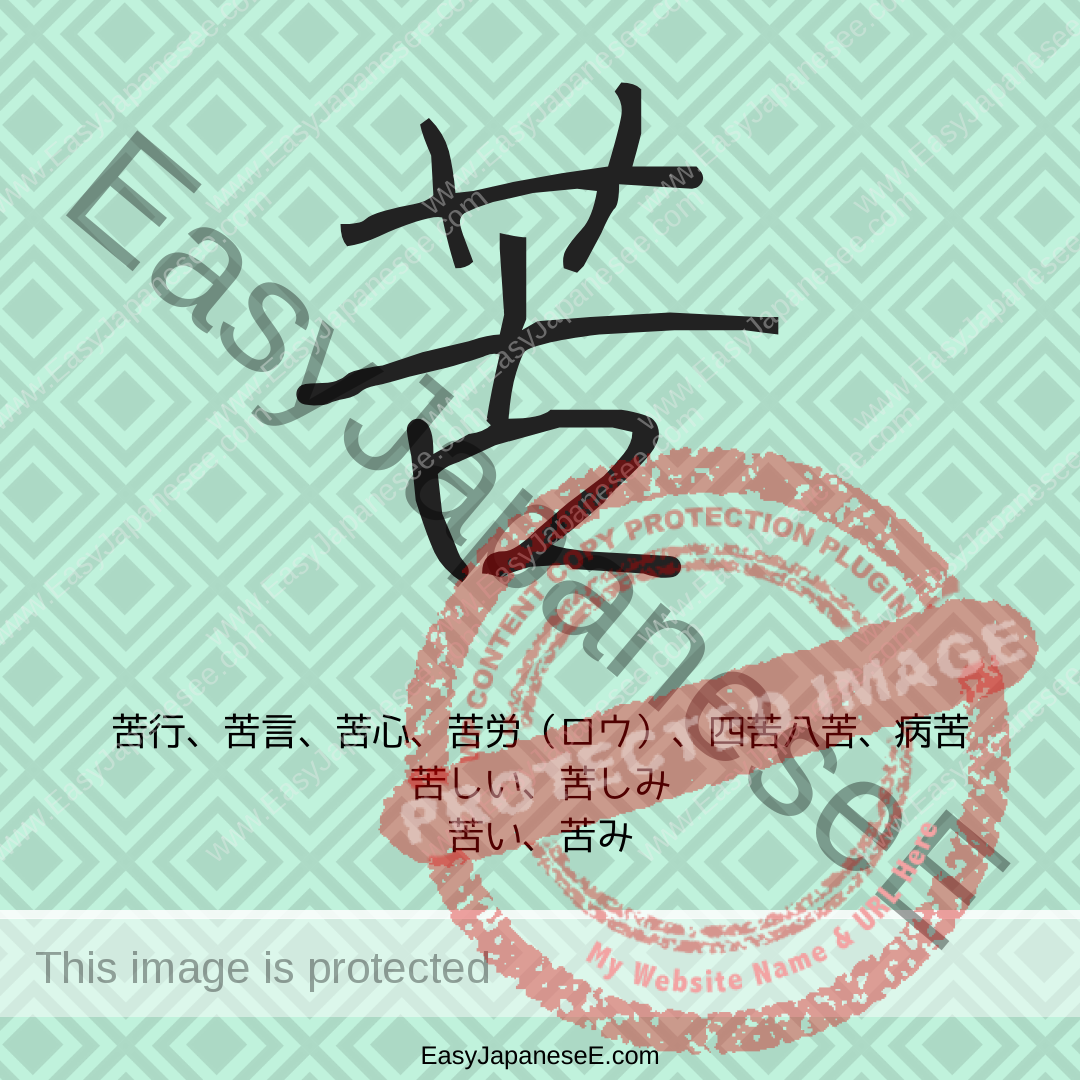
This week’s #kanji is #苦, which is listed under its semantic element of #くさかんむり(艹). Its phonetic element is 古, although…
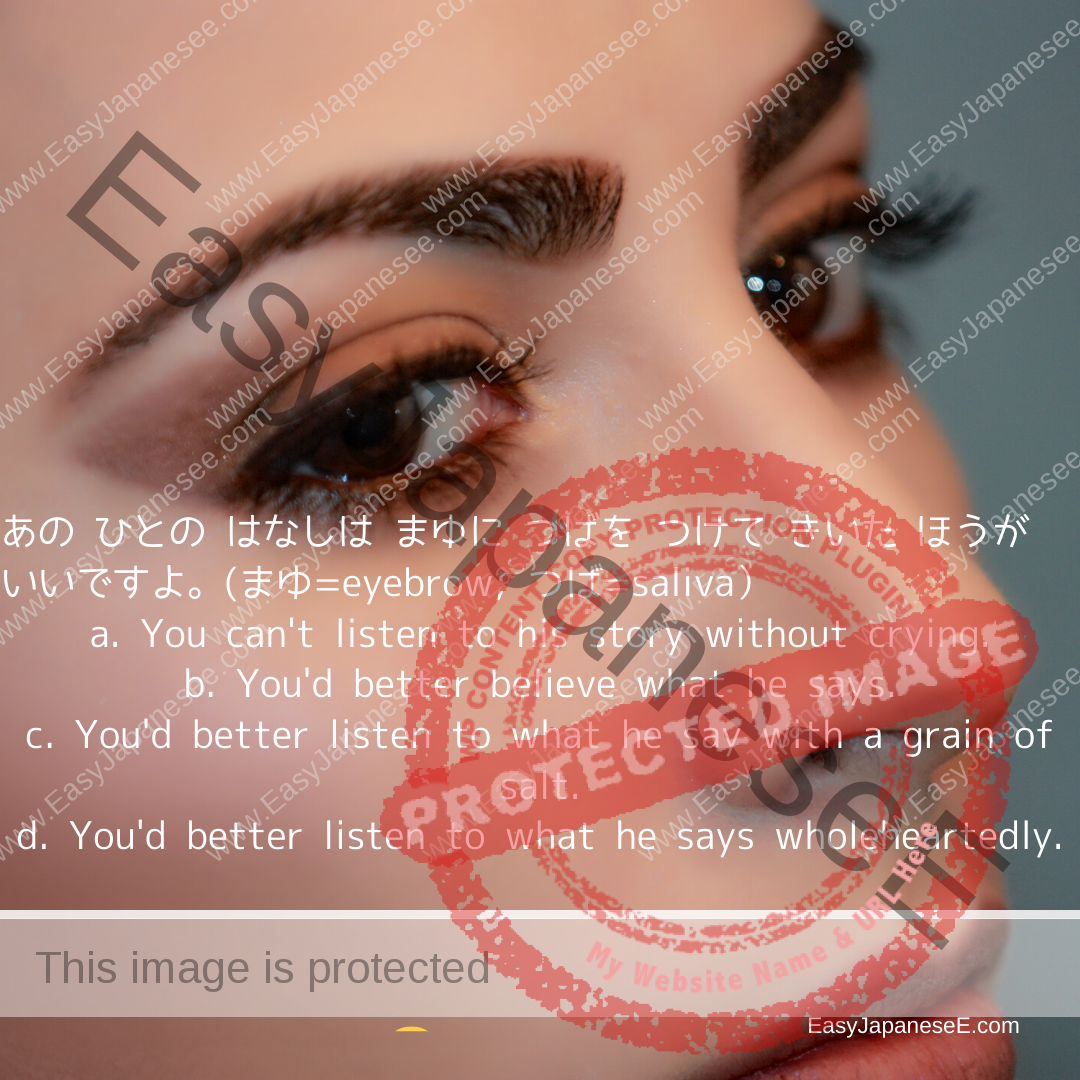
Today’s topic is customary expressions using 眉(まゆ), eyebrows. あの人の話は眉に唾をつけて聞いた方がいいですよ。あの ひとの はなしは まゆに つばを つけて きいた ほうが いいですよ。唾(つば)(Direct translation: You’d better…
![[てform]+も](https://www.easyjapanesee.com/wp-content/uploads/2020/06/200625-takakutemo.png)
あのレコードがあったら_____買(か)います。a. たかいがb. たかいけどc. たかいのにd. たかくても Today’s topic is an adversative conjunction, [てform]+も, which is usually translated as “even if”. All…
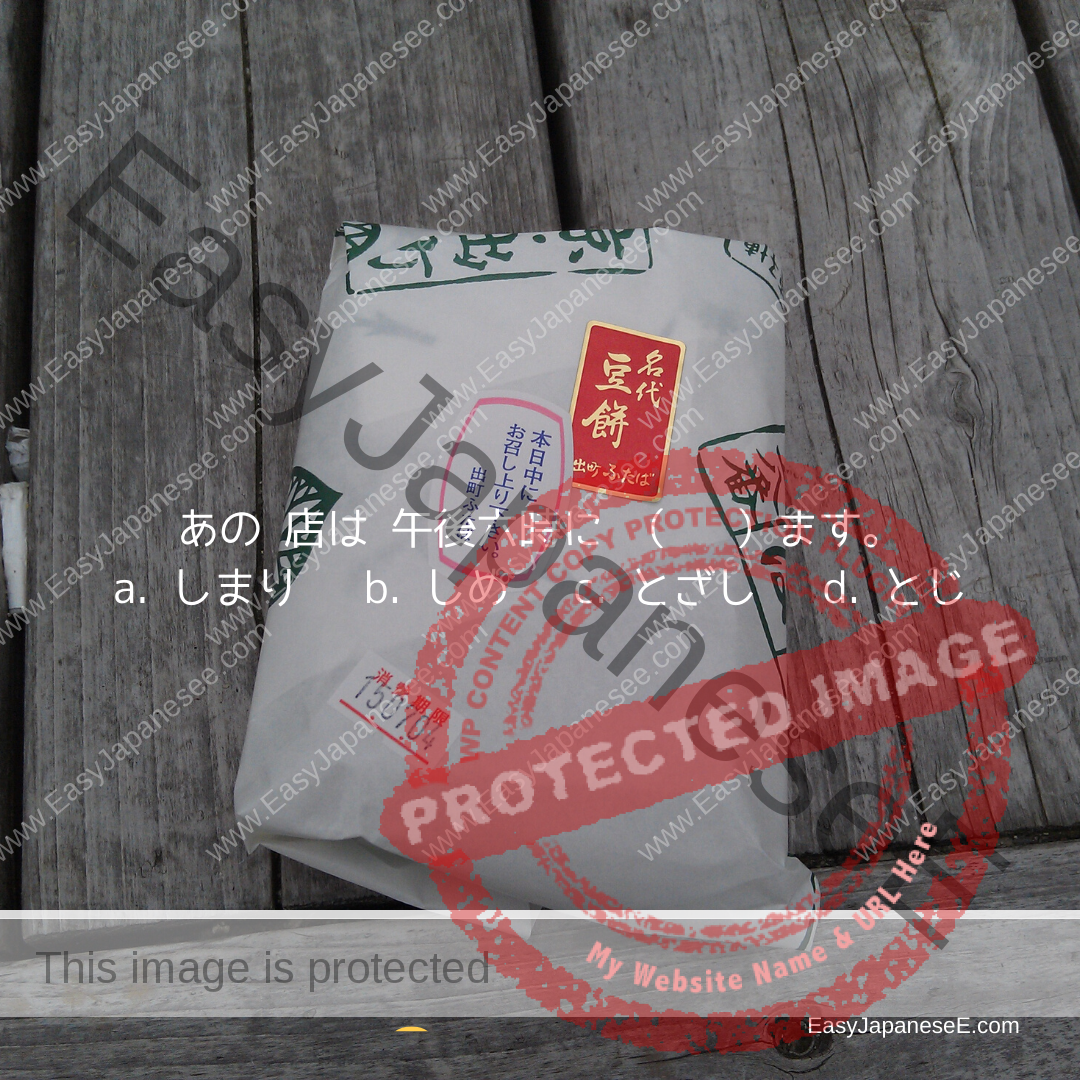
あの 店は 午後六時に ( )ます。あの みせは ごごろくじに ( )ます。a. しまり b. しめ c. とざし d. とじ The sentence says: “That…
